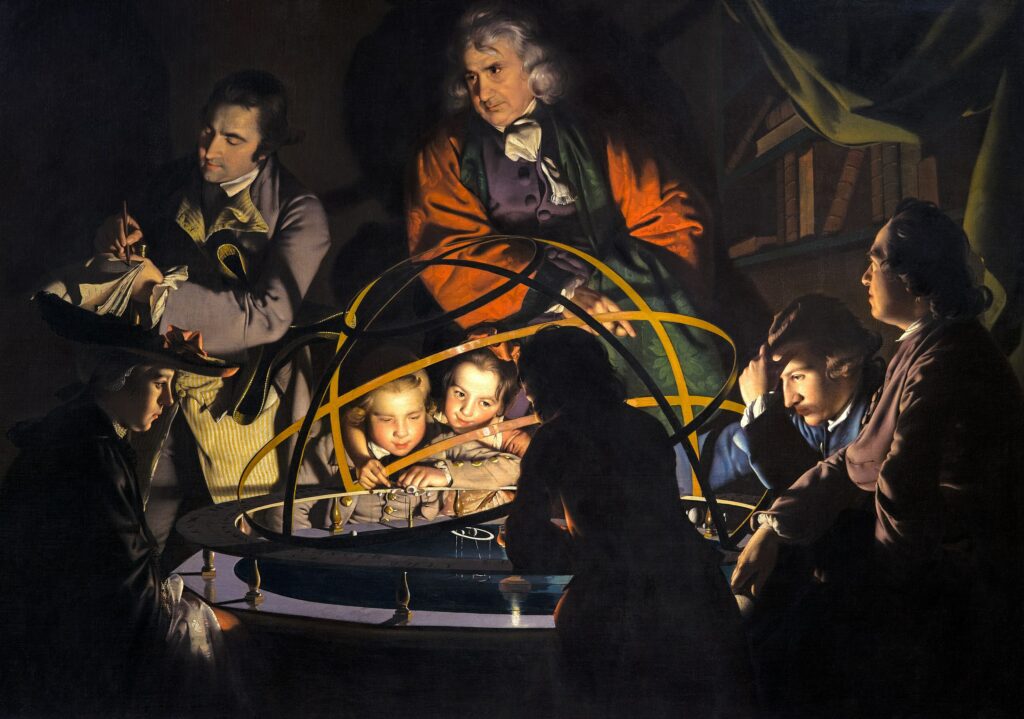"Pray, tell me," said I, "most revered and best of fathers, since this is life, as I hear Africanus say, why do I linger on earth? Why don't I hurry up and come to you there?" "It is not as you think," said he, "for unless that God, to whom all this region that you can see belongs, has released you from the keeping of your body, the entrance to this place cannot be open to you. For men were created subject to this law, to keep to that globe, which you see in the centre of this region and which is called the Earth; and to them a soul was given formed from those everlasting fires, which you mortals call constellations and stars, that, round and spherical in form, alive with divine intelligences, complete their orbits and circles with marvellous swiftness. So, my Publius, you and all good men must allow the soul to remain in the keeping of the body, nor without his command, by whom it was given to you, must you leave your human life, lest you should appear to have deserted the post assigned to men by God.
But rather, my Scipio -- like your grandfather here, like me your sire -- follow justice and natural affection, which though great in the case of parents and kinsfolk, is greatest of all in relation to our fatherland. Such is the life that leads to heaven and to this company of those who have now lived their lives and released from their bodies dwell in that place which you can see,"— now that place was a circle conspicuous among the fires of heaven by the surpassing whiteness of its glowing light—"which place you mortals, as you have learned from the Greeks, call the Milky Way." And as I surveyed them from this point, all the other heavenly bodies appeared to be glorious and wonderful,—now the stars were such as we have never seen from this earth; and such was the magnitude of them all as we have never dreamed; and the least of them all was that planet, which farthest from the heavenly sphere and nearest to our earth, was shining with borrowed light, but the spheres of the stars easily surpassed the earth in magnitude—already the earth itself appeared to me so small, that it grieved me to think of our empire, with which we cover but a point, as it were, of its surface.
And as I gazed upon this more intently, "Come!" said Africanus, "how long will your mind be chained to the earth? Do you see into what regions you have come?
See! the universe is linked together in nine circles or rather spheres; one of which is that of the heavens, the outermost of all, which embraces all the other spheres, the supreme deity, which keeps in and holds together all the others; and to this are attached those everlasting orbits of the stars. Beneath this there lie seven, which turn backwards with a counter revolution to the heavens; and of these spheres that star holds one, which men on earth call Saturn's star.
Next is that bright radiance, rich in hope and healing for the sons of men, which is called Jove's star; then one fiery red and dreaded by the world, which you call Mars; next lower down the sun holds nearly the middle region, the leader, chief and ruler of the other lights, the mind and ordering spirit of the universe, of such magnitude that he illumines the whole and fills it with his light. With him Venus and Mercury keep pace as satellites in their successive spheres; and in the lowest zone of all the moon revolves lighted up by the rays of the sun.
Now below these there is nothing more but what is mortal and transient except those souls which the bounty of the Gods has given to the sons of men; above the moon all is eternal. As for the earth, the ninth and central globe, it does not move but is the lowest point, and towards it all heavy bodies tend by their own gravity."
And, as I gazed on these things with amazement, when I recovered myself: "What," I asked, "what is this sound that fills my ears, so loud and sweet?" "This," he replied, "is that sound, which divided in intervals, unequal, indeed, yet still exactly measured in their fixed proportion, is produced by the impetus and movement of the spheres themselves, and blending sharp tones with grave, therewith makes changing symphonies in unvarying harmony.
Cicero, The Dream of Scipio, 7 - 10 (51 BC)
English translation by W. D. Pearman
☙
Descendant of:
SPACE (location)Texts with this theme:
- An die Freude, D 189 (Friedrich von Schiller)
- Idens Nachtgesang, D 227 (Ludwig Theobul Kosegarten)
- Geist der Liebe, D 233 (Ludwig Theobul Kosegarten)
- Die Sternenwelten, D 307 (Urban Jarnik and Johann Georg Fellinger)
- Die Sterne (Wie wohl ist mir im Dunkeln), D 313 (Ludwig Theobul Kosegarten)
- Luisens Antwort, D 319 (Ludwig Theobul Kosegarten)
- Klage der Ceres, D 323 (Friedrich von Schiller)
- An die Harmonie, D 394 (Johann Gaudenz von Salis-Seewis)
- An die Sonne, D 439 (Johann Peter Uz)
- Memnon, D 541 (Johann Baptist Mayrhofer)


